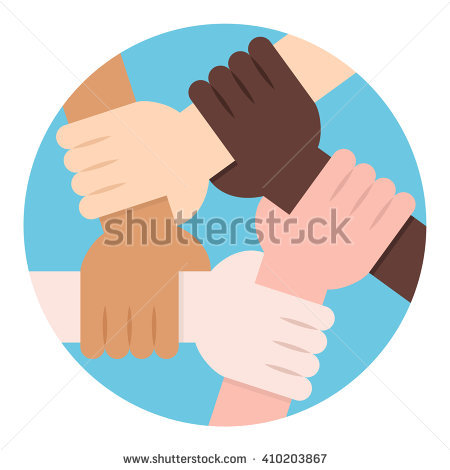Mark Lilla’s much-discussed new book, The Once and Future Liberal, while not a work in Christian social ethics, nevertheless is a crucial touchstone for deep ethical debates about our present society. Beverly Gage’s New York Times review of Lilla’s book is quite instructive in displaying these challenges. I don’t intend to take sides here, in part because we are dealing with a discussion where the authors involved have substantial agreement about overarching challenges. To a significant degree, they agree about ends; their differences are about means, but not merely instrumental means. There are implied arguments about social morality intrinsic to the differences which should be brought to light.
Gage’s review sounds at times like it is a gracious rebuttal, but ends more acerbically by calling Lilla’s effort “trolling disguised as erudition.” But what is more telling about the review is that Gage seems to avoid engaging Lilla’s substantive points: that the language of identity politics (a) undermines the traditions of classical liberalism and its principles for shared solidarity, (b) privileges self-serving testimony over reasoned argument with those who disagree, and (c) operates too much like a religion, especially in terms of insider/outsider and good/evil divides. Nor does it engage his overriding pragmatic point, that this pathway has already been seen to be electorally marginalizing and continuing it will basically be disastrous.
Instead, the complaints are as follows. One, Lilla “too often adopts attitude over substance” by “mocking” and “jeering at” his interlocutors. This may be true, although it clearly applies also to those who Gage is defending. Two, Gage chides (in a professorial tone) Lilla for “failing” on the “basic professorial imperatives” of “familiarizing himself with the relevant literature” and “providing research and evidence.” Again, this is ironic, since this is exactly the problem with much of the “relevant literature” in the first place: it isn’t familiar with the humanistic tradition Lilla is rooting himself in. Indeed, it views familiarity with that tradition as itself part of the problem. Third, Lilla is faulted for his broad historical typology of two dispensations over the last 90 years, as oversimplified. But what about the oversimplified black-and-white historical narratives that sometimes fuel identity politics?
Thus, Gage’s response is aimed at Lilla’s presentation, but not Lilla’s argument. The three objections – name-calling, not reading the right books, and oversimplifying the history – may or may not be true, but they are easily applied to those whom Lilla is criticizing as well. Important as they may be, their import needs to be explained in terms of how these failures affect the substance of the argument.
As for Lilla’s pragmatic claim, Gage simply asks: well, why can’t we “balance” both? We need free speech and respect for diversity. We need protest politics and electoral politics. This response displays one or both of two problems. It evades the point that Lilla is making that the relevant evidence of electoral reality suggests Democrats have failed in this supposed “balance” by focusing on one side and abandoning the other. And it ignores Lilla’s weightier point that these two approaches involve logically different sorts of appeals. The attempt by Hillary Clinton’s campaign to adopt a “stronger together” slogan in the midst of the evidently-divisive language of group identities exemplifies the problem. Every time a litany of preferred groups is recited, certain groups get left off the list. We are stronger together… except not with those other people. Lilla is obviously not arguing against the importance of goals of social equity. He’s arguing that identity language can run afoul insofar as it is not subordinated to – that is, ordered to – some language of universal equality. If both languages are important, they are not equally important. The goal can’t be balance, but logical order: a clear recognition that the more foundational moral language is the language of solidarity and equality, in which the injustices visited on members of specific groups needs to be explained. This is also true of Gage’s other attempts at “balance.” Genuine diversity depends on free speech; protest politics, if it’s not just self-expression, must effectively aim at electoral politics. Or at least this is the logic Lilla is trying to defend.
Does Christian social ethics – especially a Catholic version – have a horse in this race? It is generally agreed that the Catholic tradition, over the course of the 20th century, worked out a modus vivendi with classical liberal politics, albeit an uneasy one. The increasing centrality of the language of human rights and solidarity, as well as an appreciation for the centrality of the rule of law and, perhaps to a lesser extent, democratic processes, seemed to make for a relatively strong alignment between classical liberals and Catholics. However, the modus vivendi did have uneasy elements. As conceived in the teaching, both the dignity of the human person and the common good were considerably more substantive than secular liberalism could manage, and further, the importance of the preference option for the poor, made especially prominent by liberation theologies, also was hard to fit. In a sense, all of these pushed in the same direction, toward a “thicker” sense of community – albeit one that looked rather different from some forms on offer. It probably resembled most closely the attractive but unstable brew of liberal communitarians whose zenith was in the 1990’s – figures like Robert Bellah, Robert Putnam, William Galston, and many others – and who especially sought to rekindle a sense of participatory citizenship in the wake of the end of the Cold War and the triumph of consumerism. Lilla seems a kind of heir to these figures, albeit one who is not paying as much attention to the mid-level civil society terrain which they targeted. And unfortunately, organizations of civil society – and in particular, mediating, moderating ones, up to and including political parties – seem in even worse shape than they did 20 years ago. The “direct access” route to the presidency has now been proven. The only remaining institutions of civil society that still command respect from a majority of the population – the military and the police – are themselves politicized.
The problem for Lilla is that, if he wants general liberal aims like social solidarity to be more than slogans, then he needs social practices in which they are learned. But if the actual social practices consist of twitter wars and competing protest marches, then we have a problem. And indeed, it should be pointed out that, as a national figure, Barack Obama was relatively well-liked. We had eight years of a fairly compelling, low-drama figurehead. It is possible to maintain that Obama the president never managed to translate the unifying rhetoric of Obama the candidate into the bully pulpit; and it is equally possible to maintain that his attempts to do so were thwarted by Congress and hostile media. Whatever the view, it may be that the fragmentation of the society has made it almost impossible for any figure to serve as an attractive figurehead for social solidarity. And if that’s true, then Lilla’s desire faces a double barrier: no way to get unity on a surface level, and no way to cultivate unity through more local practices.
From a Catholic perspective, it seems that each side is missing the deeper, more substantive commitments that might make a politics of solidarity possible. And the difficulty each side has in engaging the other suggests how problematic the discourse has become. We have Ivy League intellectuals at the top of their game who share a common commitment to overarching social goals, who nevertheless are talking past one another. Gage and Lilla in effect display that American intellectuals on the Left has ceased to speak from a common language and tradition. If that can’t be overcome, it seems pretty clear that the other party will have its way for a long time. I saw a symbol of this yesterday on my Sunday morning run. In Rock Creek Park in northwest DC, someone had hacked into an electronic construction sign, and it was flashing, “[Expletive] Trump,” and then (more disturbingly) “Kill Nazis.” And people were laughing at it and stopping to take pictures. Very troubling.
Amidst this dissension, it is surely good news that the response to Hurricane Harvey has seemed to demonstrate an “all hands on deck” approach that still shows the willingness of so many people and organizations to pull together in times of great need. A strong leader would take this opportunity to build a bridge to larger, more gradual social goals, explaining how we might work together to meet these challenges. If Gage and Lilla can agree on one thing, it’s that the present leader will not succeed in doing that.




